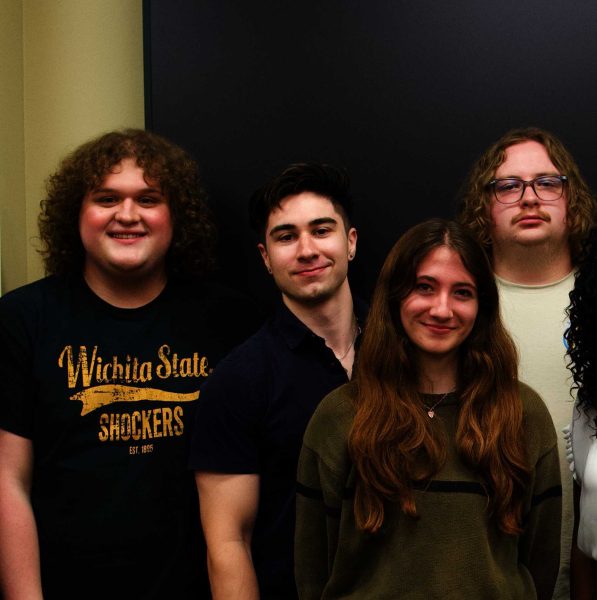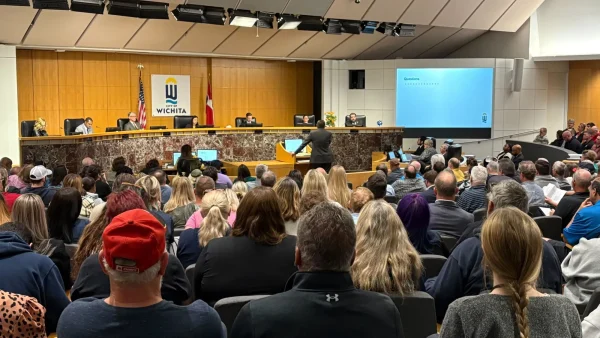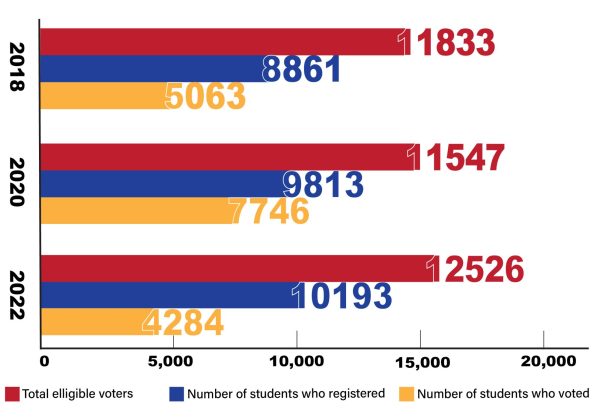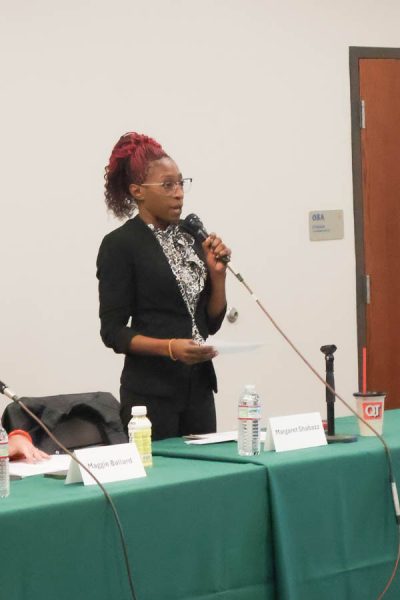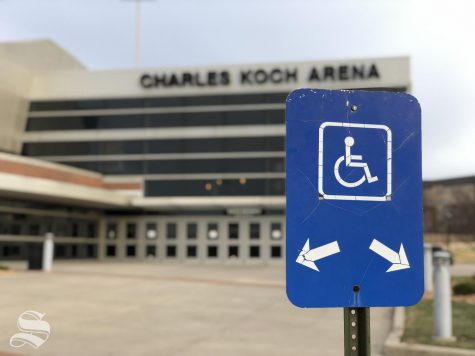Hurtful comments: Are they free speech?
Taben Azad feared his safety after seeeing hundreds of Facebook comments directed at him after the now-infamous “chapel debate” went viral nationwide.
“They would make references to Islam and terrorism,” said Azad, vice president of the Muslim Student Association at Wichita State. “They would say, ‘Why are you following a religion that promotes killing people?’ There is a risk to standing up for what you believe in. I am fine with standing up for what I believe in if that means that I might get targeted …but you have to be worried about other things, too, like your friends and your family, so I was worried about their well-being.”
Those comments, now made almost six weeks ago, led student leaders to demand that the university issue a public apology addressed to those students who felt threatened.
University President John Bardo issued a letter to the student body Monday to respond.
“We had university police and the university’s attorney review the communication to see if it threatened physical harm or crossed legal boundaries into criminal hate speech,” Bardo stated in the letter. “That wasn’t the case. I am sorry that people felt the need to resort to hateful speech to get their point across. That doesn’t further any educational purpose of this university.”
Shepard said at a State of the Union address on Wednesday that he “never asked for you to diminish the rights of anyone else … because that’s wrong.”
Rather, he only wanted a statement of support.
Khondoker Usama, vice president of Student Government Association, said he was advised to switch up his normal daily schedules in various ways in order to minimize the risk of an attack.
Usama, who is Muslim, said that he did not go to his office for two days because he was told it was unsafe for him to follow his regular hours.
“One email I received was 47 pages long,” Usama said. “I don’t even know how a person can write something so hateful and so long. I mean, when my professor tells me to write a three-page paper, I freak out.”
Shepard said that he, too, received some shocking messages, and that he had to resist the urge to respond because he was encouraged not to. Usama said that he was also advised not to respond, as well, but that he also had personal motivation to resist.
“I do not feel that it is my job to [respond], because I feel that if I do that, that puts me in the defense when obviously I am not, because I know that I am doing the right thing,” Usama said. “Why do Muslims feel they need to figure out an explanation and be on the defensive side? When are we going to be able to actually enjoy the freedom that other people enjoy?”
Shepard said that he sent a letter to President Bardo requesting for a public statement to be issued in support of the student leaders. He said he received a response from General Counsel David Moses stating that the administration supported them, but that they could not issue a public statement because they did not want to diminish the First Amendment rights of the people sending the hate messages.
Due to the generality of the laws, it is often difficult to draw the line between what is constituted as hate speech, which is technically legal, and fighting words, which are not.
“In this case, people were saying some bad things, but that did not cross the line to those fighting words that are actionable under the criminal threat statutes in Kansas,” Moses said. “We are sensitive to the fact that there were some real bad things being said. They were being said to Dr. Bardo. But that doesn’t make them actionable…you really have to be careful before you put a muzzle on somebody.”
Usama said that he thinks it is important for an administration to have the backs of their students in times of trouble, especially when the students fear for their safety.
“We’re not asking Bardo to suppress freedom of speech for certain groups; we’re asking him to take a stand and to take measures to protect the student leaders,” Usama said. “I hope the administration will consider doing things in good faith and will continue to work with the student body. Without proper representation, nothing will be achieved.”
— Contributing: Shelby Reynolds



